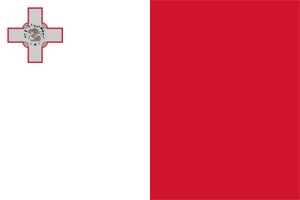Malta Gambling Jurisdiction

Malta, this sunny island plays host to hundreds of online gaming operators.
In 2002 Malta first started issuing licenses to gambling operators under the Public Lotto Ordinance. After that the Lotteries and Gaming Authority was formed to license and regulate numerous gaming sectors counting in Internet or remote gambling operations.
As a result of the exponential growth of internet gambling, the Remote Gambling Regulations under the Lotteries and Gaming Authority has been revamped in 2004 to cater for four classes of remote gambling licenses. Two of these classes pertain to online casinos.
Class 1 is for operators and Class 4 is for operators hosts and managers who are not operators. Class 2 is for sports betting operators and Class 3 for advertisers that run their operations from Malta. The Malta Remote Gaming Council was elected in March 2005 to involve licensees in the decision making process. The Council created an online forum that enables licensees to express their concerns on legal, technical, and administrative matters.
For a period of five years licenses are granted with the option of renewal thereafter for five-year periods. Based on their profits all four remote gaming licenses pay taxes. The maximum payable cap placed on gambling tax in Malta in one calendar year is EUR 466,000.
In any class EUR 2,330 is the application fee for a new remote gaming license. The application fee is payable on condition the applicant applies for a new license. The license renewal fee is EUR 1,165 (for following five-year periods). For any class license the yearly license fee is EUR 7,000.
Any new licensee who wants to start an internet gaming operation in Malta must first set up a corporate entity for its operations. In the past this could have been done by means of a limited-liability company that has been registered in Malta specifically for this purpose. In the meantime the regulations have been changed; any corporate body established in Malta under the Companies Act can now apply for a remote gaming license.
In September, 2007 the Gaming Commission of Malta got a shot in the arm when it made the United Kingdom’s “white list” of jurisdictions whose members are permitted to advertise in the British media. After an intense investigation jurisdictions are permitted to the white list. If a member is on the “white list” it boosts the internet casino’s traffic since players consider it “fair and safer” to wager at.
The European Gaming and Betting Operators (EGBA) is an organization of the private gaming operators that operate in European Union countries. One would expect the internet casinos that are licensed in the Malta jurisdiction would automatically be members of the EGBA. The EGBA has in place its own set of criteria that all its members must stick to. These are more rigorous than those requisite by law. In addition this cements and solidifies the reputation of internet casinos licensed in the jurisdiction of Malta. In excess of 500 internet gambling operators have registered offices in Malta.
[addtoany]